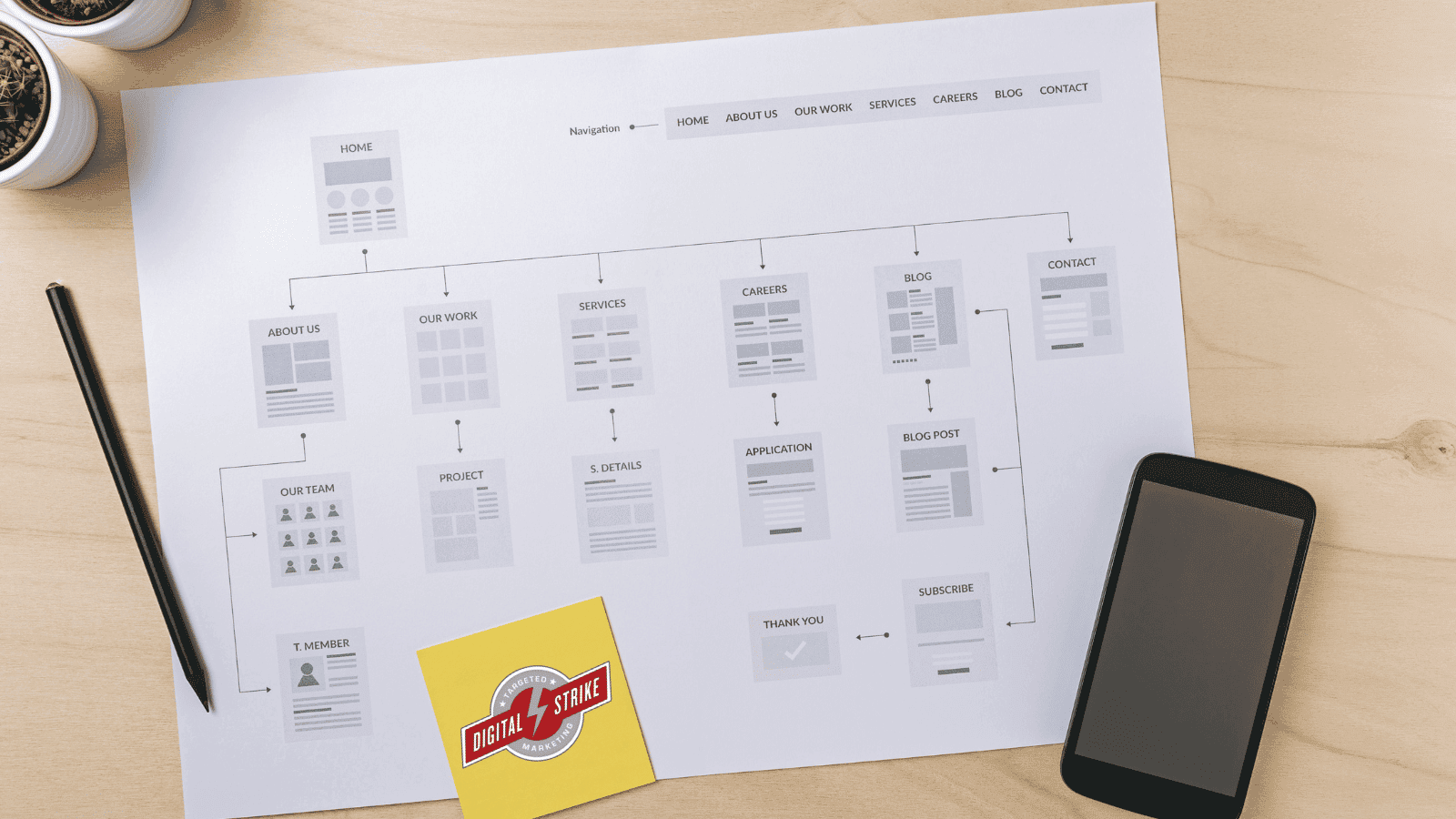You’re waiting for your website to perform well on Google, Bing, and other search engines. And waiting. And waiting…
After some checking, you discover that your website isn’t just not ranking well–it isn’t even showing up on Google!
What gives, anyway?
6 Reasons Your Site Is Not On Google
There are several reasons why your site is not appearing in Google search engine results pages (SERPs). Fortunately, most of the time, there is a simple fix to these issues.
1. Not Yet Indexed
There is a lot of content on Google. That means the search engine has to sort through massive amounts of content before showing users the sites most relevant to their queries.
In order to bring up results for search queries quickly, Google uses a process known as indexing. In other words, Google will store (or index) websites and their content in a massive directory. Then it will analyze the content to see what each page is about. That way, Google can bring up only the most relevant and trustworthy content in SERPs, giving people a great user experience.
Indexing isn’t an immediate process; it will take Google some time after you publish new websites and pages before indexing them. If your site is not yet indexed, it will not show up in Google search results; that means people will only be able to view the page by using its URL.
Some of the most common reasons why your site isn’t indexed? Google hasn’t had time to index a new site yet, or you accidentally marked your site as “no index” on your site management platform.
These two issues are easy enough to fix. For the first issue, simply request indexing on Google Search Console. For the second issue, check the process for indexing on your preferred site hosting platform. (You can read more about both below.)
Request Indexing On Google Search Console
One of the easiest ways you can see if your website is appearing on Google’s index is to use Google Search Console’s URL Inspection Tool.

- To start, access your website’s Google Search Console account.
- Then, you should be able to paste the URL you want to check into the gray search bar at the top of the screen; it should read “Inspect any URL in [domain name].”
- After hitting “Enter,” the tool will tell you whether or not the URL is indexed on Google. If your site is not yet indexed, you can send a request to Google to index the URL, which can expedite the process.
Check Index Status On WordPress
WordPress powers over a third of all Internet sites, according to some estimates. Fortunately, WordPress makes it easy to choose whether or not your site should be indexed by search engines like Google:
1. Log in to WordPress and select “Settings” from the left-hand column.
2. Select “Reading” under the “Settings” tab.

3. Scroll down to “Search Engine Visibility.”
-
- If you do not want your site to be indexed, select the box that says “Discourage search engines from indexing this site.”
- If you want your site to be indexed, do not select this box.

You can also install certain plugins, like Yoast, that allow you to tag an individual page for indexing or no indexing.
2. Duplicate Content And Competing URLs
Google likes unique, useful, high-quality content. That means that content on one page that is identical or nearly identical to other pages (duplicate content) can be barred from indexing, meaning that it won’t show in SERPs, much less reach the first page of Google. Or, if the pages aren’t barred from indexing, they might both be competing for the same competitive keyword. This competition means that both pages rank lower in SERPs.
There could be plenty of technical reasons why duplicate content might exist on separate URLs within the same website, including issues with restructuring a site. The easy solution to these issues is to establish a canonical URL and use legitimate redirects.
A canonical URL is what Google considers the “official” version of the page. The canonical URL is the one that is eligible for indexing and can rank well on SERPs. Redirecting is the process of telling Google (and users) to move from one URL to another.
In cases of duplicate content or the like, mark one page as the canonical URL. Then redirect any competing URLs to the canonical URL. This way, only the canonical page will compete for your target keywords, meaning it has a better chance of being indexed and ranking higher on SERPs.
3. SafeSearch
One simple, yet often overlooked, reason your site isn’t showing up? SafeSearch.
SafeSearch is a feature designed to filter “inappropriate” Search and Image results on Google. Even sites that you may not consider to be offensive or inappropriate can be filtered when SafeSearch is on. That means SafeSearch can block certain sites from appearing on SERPs! Fortunately, the solution is simple. Was SafeSearch on while you were searching for your site? If so, turn SafeSearch off.
1. To turn off SafeSearch, simply click on “Settings” in the top-right corner of your screen.

2. Then, toggle “Explicit results filter.”

Previously excluded results–potentially including your own site–should start pouring in.
4. Blocked Googlebots
Robots are all over the Internet. From web crawling bots to spam bots, there is no avoiding bots on the web.
Because robots are unavoidable online, websites will use the robots exclusion standard, or robots.txt file, to communicate with web bots and crawlers and tell them how to engage with (or not to engage with) a site. Sometimes, however, there can be an error with robots.txt that prevents Google’s robots (Googlebots) from “crawling,” or scanning and analyzing, your site. If Google cannot crawl your site or its web pages, nothing can be indexed. Check with your webmaster (or use webmaster tools yourself) to see if there is something amiss in the robots.txt file or your site’s HTML and/or XML sitemap that is blocking Googlebots from crawling your site.
5. Google Penalties
Google has rules; break enough of them, and your site could be penalized.
Google Penalties are penalties sites receive when they break terms of service or do not meet Google algorithm’s Core Web Vitals standards. Incurring enough penalties can bar a site from indexing.
Common reasons for penalties include:
- Keyword stuffing, or putting in certain phrases too often in copy and in ways that are irrelevant or awkwardly worded.
- Hidden text, or text that is “hidden” from users (such as using white font on a white background) in an attempt to keyword stuff without visually appearing to keyword stuff.
- Unnatural backlinks/spam links, or inbound links that Google considers to be harmful. They are irrelevant to the content they are linking to.
6. Miscellaneous Errors
There can be any number of miscellaneous issues on either your entire website or specific pages that lead to issues with indexing. Using the Google Search Console URL Inspection Tool, you can see what sort of technical issues may be blocking your site from being indexed and subsequently appearing on Google. These issues include having poor-quality content.
Technical SEO problems may also cause your site to either rank lower (or not at all) in search results. They refer to problems with server and website optimization that may make it harder or impossible for a robot to crawl the site. Common technical SEO issues include:
- Massive images that slow down page speed.
- Incorrect or improperly used meta tags.
- Business details like phone number and address not matching across various platforms (which you can easily fix with Google My Business).
- Not utilizing internal links.
- Not making use of your company’s social media accounts for link building.
Once you know what technical problems are preventing Google from indexing your site, you can work to fix the issue so that your page is eligible for indexing.
Final Thoughts
There are a number of reasons why your website is not showing up on Google. The good news is that there is usually a simple, straightforward fix to these problems. Simple changes, like legitimate redirects or checking the right “index/noindex tags” on your web hosting platform, can rectify most problems that prevent you from earning a better site rank or getting conversions for chosen search terms.
If you want a second set of eyes on your indexing problems, why not call the digital marketing and SEO experts? Contact us today so we can help you figure out a solution to your website’s problems, so you can index and work your way up SERPs.






